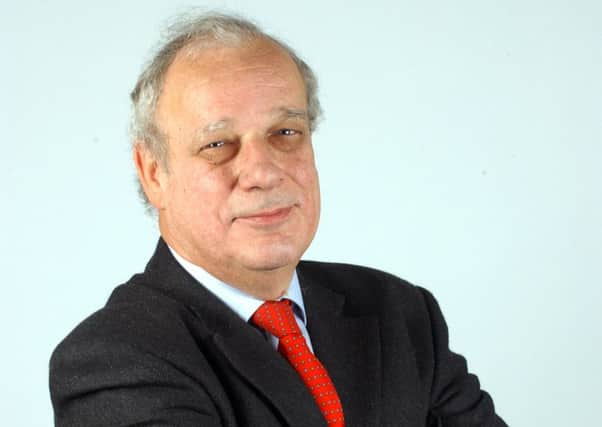Bill Jamieson: How to earn cash for seven Porsches


The modern investment world revolves around the pursuit of active fund management. Everyone is at it – from the well-heeled fund managers through the sales and marketing executives to the thousands of independent financial advisers.
Now, there are many successfully managed active funds. And investors can do spectacularly well by investment in them, handsomely beating the returns from a passive index-tracker fund if they choose well.
Advertisement
Hide AdAdvertisement
Hide AdBut it’s the last four words that are the killer. Most investors do not choose well. Most investors can’t beat the market and should not even try.
Don’t take my word for it. Former hedge fund manager Lars Kroijer has just published a book entitled Investing Demystified – How to Invest Without Speculation and Sleepless Nights. Its central premise is that the vast majority of investors have no real prospect of having an edge to beat the markets.
It means, he told Morningstar interviewer Holly Cook last week, “that you will as an investor in all likelihood not be able to make a security selection or pick stocks or index funds or anything, also the active fund is better than the market as a whole and that you shouldn’t even try.”
Deep heresy, surely, for the fund management industry – but not necessarily for the private investor. Kroijer’s advice is that, since all investors cannot by definition beat the market, they should “buy the broadest, cheapest index funds you can get your gets hands on”. That’s not to say that performance edge does not exist – of course it does. And in certain areas such as emerging markets there is a role for specialist and active fund management.
But as a general guide, to those seeking to identify superior performance from an actively-managed fund, “don’t try because it’s expensive to try. You’re going to be worse off in the long run picking active managers than [if] you’ve picked a passive manager if you don’t have the magical ability to pick the superior performers.” He cites an average saver in the UK who makes £50,000 a year and puts 10 per cent of that aside every year into equity markets. “Let’s say that person does that between the ages 25 and 67, so it’s a normal working life span. And let’s further say that the stock market has performed much like they have historically, so about 4.5 per cent to 5 per cent above inflation.
“The difference at retirement for that person between having picked a passive fund; that’s called the world equity index and an active fund that tracks the same thing, the difference in fees will amount to almost £300,000 in today’s money … the equivalent of seven Porsches.
“So, essentially, I’m saying that the average saver, someone who makes £50,000 a year will over a lifetime pay the equivalent of seven Porsches to the financial sector for a product that does the same thing, or very close to the same thing. In fact, I’d argue the passive product is better diversified”.
Now this is a very seductive argument – though for those fortunate enough to have invested in Harry Nimmo’s Small Companies Trust at Standard Life or Roger Bolton in his heyday at Fidelity, passive index tracking would have been a very poor option.
Advertisement
Hide AdAdvertisement
Hide AdHowever, for many private investors it would make sense to have a large central core of low-cost passive funds and trusts and have active, specialist ones as satellite holdings.
Emerging market funds are a good case in point, as, contrary to consensus opinion at present, 2014 may well see a recovery in fortunes.
So, as I try out one of those vroom-vroom Porsches, this would be my brave, non-passive, preference for 2014.